The Camino de Santiago or Camino Frances (or anyone of hundreds of names for this trip) is one of the world's greatest pilgrim routes. The most popular route (known as the Camino Frances) starts in France, crossing the border high in the Pyrenees before stretching right across the north of Spain until it reaches Santiago de Compostela in Galicia, north-west Spain. The whole route takes over a month to walk, and while we would wholeheartedly recommend walking the full Way to get the very best experience, we know it is not possible for everyone to take this much time out of their lives. The route is broken down into five sections, so if you only have a week, what are the pros and cons of each stage?
Camino Frances Stage 1 - St Jean Pied de Port to Logroño
The first stretch of the Camino Frances is one of sheer beauty. It has so much going for it and is my personal favourite. The first day from St Jean Pied de Port is arguably the most physically demanding day on the whole month-long trek to Santiago, but it is very worthwhile. There is a low route, which is more comfortable on the knees, but is a little dull and misses out the sheer beauty and drama of starting your trip by walking over the Pyrenees. There is a small hostal in Orisson, around 8km into the first day and you can split your journey here, but it doesn't take enough of a chunk off the days walking to make it worthwhile. Better off just getting the head down and getting on with it. The rewards are not only the stunning views; the day is packed with wildlife as you encounter wild horses and spot large birds of prey every kilometre or so. The sense of achievement at reaching the summit and the even greater one as you arrive at your accommodation in Roncesvalles, knowing you have conquered the toughest part of the trip.
The rest of the weeks walking is gentler, though there are still some ups and downs. For much of it you follow old Roman roads which wind through farmland and forest, always frames by the hills of the Navarra region. While all the towns you stay in are delightful, the highlights of this week's walk are definitely Pamplona and Logroño. The first stage is an outstanding introduction to Basque culture and cuisine, and these two cities really show this off in a great light. Pamplona is perfect for a Hemmingway inspired moveable feast, as you wander around the city, exploring and nibbling at a different pintxo in each bar. Then, once you understand how it all works, you are ready for the pure joy of Logroño. Logroño is the capital of Rioja, but it is so close to the border with the Basque Country it retains much of the custom and culture. Calle de Laurel is a small, thin street running through the heart of the city which has nothing but pintxo bars on it, each serving their delicious speciality, which should be paired with any of the fantastic wines on offer. The first week works perfectly as an introduction to Spain, to the Camino and the way of life it offers for the next month. However, it also rates highly as a standalone trip, giving you everything you could want from a week walking.
This section is perfect for - those looking for a standalone experience on the Camino de Santiago. Also, if you think you might one day walk the whole route, then it is best to start at the beginning. Despite some tougher walking, it is an excellent insight into the culture of the Basque country, there are some great cities and delightful towns, and the food is outstanding.
Camino Frances Stage 2 - Logroño to Burgos
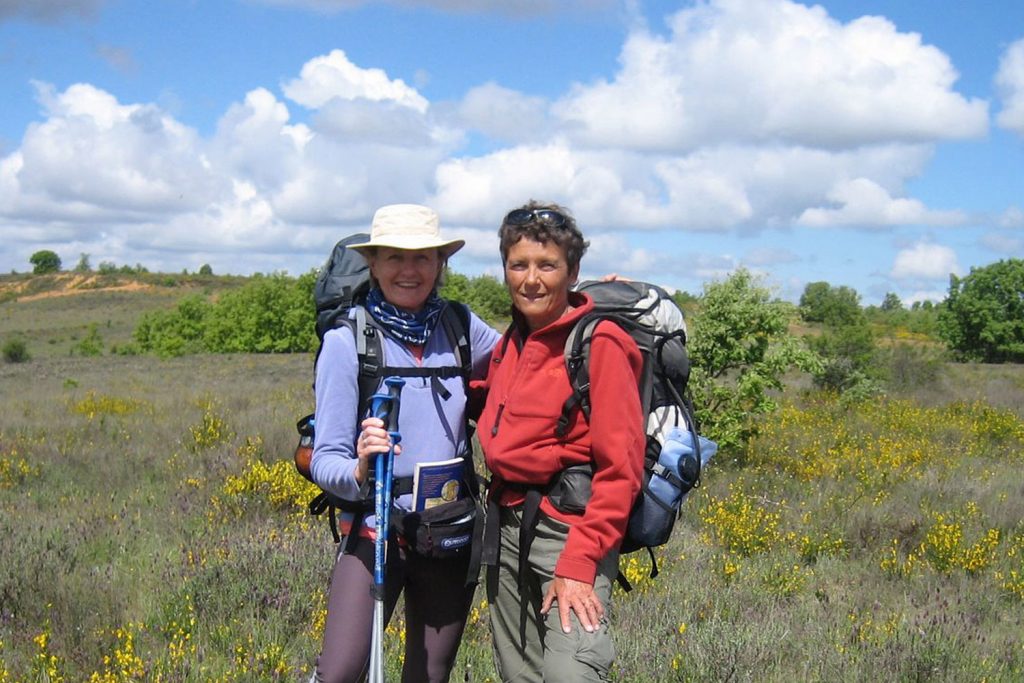 The second stage of the Camino is a little shorter and easier going, but still provides enough challenge and highlights to make it an excellent stand-alone walking holiday. The first few days are spent walking through Rioja, so you will see many vineyards and hidden little churches on the route. Each village you walkthrough on this quiet section will have a small town square and a church and inevitably make you want to live in this peaceful part of the world with its slow pace of life. On your third night, you will stay in Santa Domingo de la Calzada, which is definitely a hidden gem on the route. This medieval town is ancient and friendly. Small winding streets suddenly open up into grand Plazas lined with beautiful architecture. The cathedral is well worth a visit and if you fancy a bit of luxury, upgrading to stay in the Parador is a great idea, worth it for the feel of staying in a building so old and grand. The rest of the trip winds through forest and farmland, passing through the joys of the Oca mountains, giving a different feel to the end of your journey. Then you get to finish in the gothic masterpiece that is Burgos. The Cathedral here is one of the finest examples of Gothic architecture in all of Spain. It looms large on the skyline, dominating the city, but don't just focus on this. It is well worth getting a bit lost in Burgos, exploring its beautiful streets and discovering hidden restaurants serving the best in Castillian food.
The second stage of the Camino is a little shorter and easier going, but still provides enough challenge and highlights to make it an excellent stand-alone walking holiday. The first few days are spent walking through Rioja, so you will see many vineyards and hidden little churches on the route. Each village you walkthrough on this quiet section will have a small town square and a church and inevitably make you want to live in this peaceful part of the world with its slow pace of life. On your third night, you will stay in Santa Domingo de la Calzada, which is definitely a hidden gem on the route. This medieval town is ancient and friendly. Small winding streets suddenly open up into grand Plazas lined with beautiful architecture. The cathedral is well worth a visit and if you fancy a bit of luxury, upgrading to stay in the Parador is a great idea, worth it for the feel of staying in a building so old and grand. The rest of the trip winds through forest and farmland, passing through the joys of the Oca mountains, giving a different feel to the end of your journey. Then you get to finish in the gothic masterpiece that is Burgos. The Cathedral here is one of the finest examples of Gothic architecture in all of Spain. It looms large on the skyline, dominating the city, but don't just focus on this. It is well worth getting a bit lost in Burgos, exploring its beautiful streets and discovering hidden restaurants serving the best in Castillian food.
This section is perfect for - those looking for a snapshot of the Camino with some flatter, easier walking than section 1. The trip is bookended by two great cities and the towns along the route have enough charm and interest to make them hugely enjoyable. Also, if you are a fan of wine, it is not a bad shout!
Camino Frances Stage 3 - Burgos to Leon
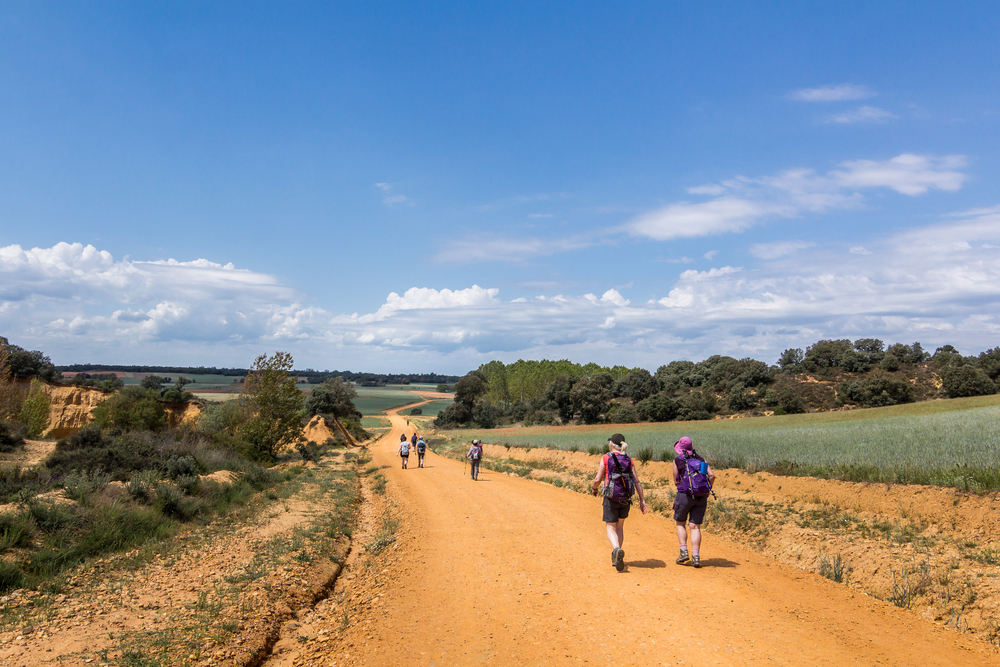
There is one word that dominates this third stage. Meseta. It is a word that any pilgrim will have heard and one which fills them with mild dread. The Meseta is a long flat section through the plains of northern Spain. While flat does sound appealing to many walkers, this is a section that people often skip when taking the full trip. While we would suggest that it is perhaps not the greatest section to walk as a standalone trip, it fits perfectly in the overall arc of the full Camino. The main issue with the section is the lack of anything! Long, open sections with no shade, meaning it can be oppressively hot in the high summer and not hold much interest for those that have been spoiled with fantastic scenery for the last two weeks. However, there are some marvellous villages and fascinating ruins, the people are friendly, the unique culture in this area is fantastic.
The Meseta also performs a significant part of the full journey to Santiago. With not as much to look at and drink in, this is the section where the spiritual element comes to the fore. Pilgrims begin to internalise more, to think about themselves and their reasons for taking the trip in the first place. The Meseta is where the strongest bonds are formed with your fellow walkers and plays a massive part in the whole Camino experience. How you would feel about this if you just walked the week as a standalone trip, I don't know, but I would imagine that unless you are walking the full route one week at a time, you should probably opt for one of the more scenic routes. However, starting in Burgos is a pleasure and finishing in Leon is as grand a finish to any trip as you could ask for. It has a similar grandeur to Burgos, but Leon comes alive at night. The large student population means that the city has a great atmosphere in the evenings. The bars and plazas come alive with the vibrant chat of the student population and makes for a fantastic city in which to spend a couple of nights.
This section is perfect for - In all honesty, we wouldn't really recommend this section as a stand-alone walking holiday. As part of the overall route, it is essential and plays a vital role, but taking a week off work to walk this stage might leave you feeling a little disappointed. Burgos and Leon are fabulous, but the bit in between lacks the drama and charm of the other sections.
Camino Frances Stage 4 - Leon to O'Cebriero
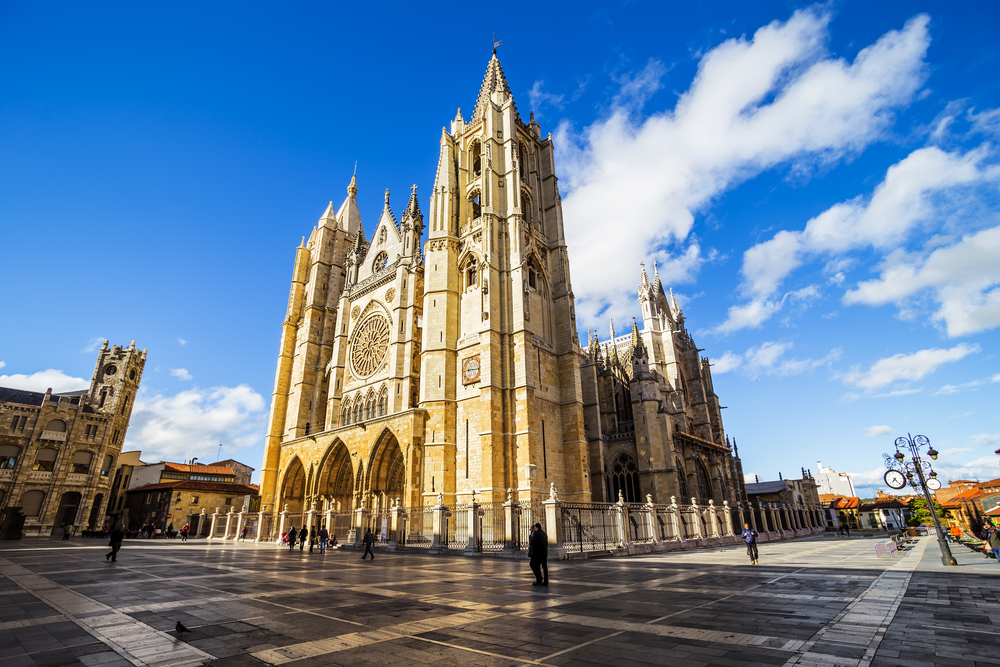
This fourth section of the Camino offers some of the most beautiful scenery on the route. It would be a lie to say that it was all beautiful, the walk out of Leon to start the trip is not the most aesthetically pleasing, but once you reach Hospital de Orbigo with its Roman bridge, things change rapidly. Once you reach Astorga, after your second days walking, you are entering the hills of Galicia, delightfully green and rolling, with views stretching as far and wide. Ponferrada is home to the grandest castle of the Knights Templar which is worth exploring, and Villafranca del Bierzo is bursting with architectural wonder, from medieval archways to beautiful little churches. It is also home to a natural history museum that is well worth visiting.
This section has the second most climbing on the whole route, but again, this is something that should be enjoyed rather than feared. Walking up to once abandoned villages and the atmospheric Cruz de Ferro, are well worth the effort. Also, if you have been carrying a stone with you (to represent your worries or burdens), you can deposit it at the Iron Cross and continue on your way unburdened, both physically and spiritually. The other climb sees you arriving at your final destination on this weeks tour, the tiny village of O'Cebriero. This ascent is a short, sharp shock! Steep, but over quite quickly.
This section is perfect for - People who are looking to experience some beautiful Spanish towns and villages, full of historical interest. The walking also gets progressively more attractive as you walk and will provide a great experience as a standalone trip.
Camino Frances Stage 5 - O'Cebriero to Santiago de Compostela (or the more popular Sarria to Santiago)

The final fifth stage is the glory leg of the trip and the most popular by far. Though, most people tend to start this adventure from the town of Sarria, as this is 100km away from Santiago which makes it the shortest trip possible to still get your Compostela certificate at the end of the walk. The walk takes you through Galicia and showcases the unique charms of the people of this part of the country. Galicians are very relaxed and have a slightly less enthusiastic take on life than the rest of Spain. People mainly attribute this to the amount of rain in Galicia, which does mean that you should always pack a waterproof, but it also means that the landscapes are lush and green. The hills of Galicia are one of the most charming places to walk passing through charming villages which are all buzzing with the excitement of pilgrims coming to the end of their trip.
This is an incredibly sociable section of the walk. If you have walked the full route, you may find yourself a little overwhelmed to be suddenly surrounded by crowds of 'final stagers,' and while you have put in the time to do the whole journey, this is a chance to tell your tale to a new and rapturous crowd and inspire them to go back and walk the entire route from the start. The walking is not too difficult on this stage, and you will spend much of it chatting with other pilgrims.
The real draw of this stage is reaching the finishing line. Santiago de Compostela is a beautiful city, and when you see its spires in the distance, your heart soars. In the city, there is a lovely feeling of togetherness as you visit the multitude of bars and restaurants and attend the pilgrims mass at the stunning cathedral. There is also an incredibly grand Parador right beside the cathedral if you want to spend your last night in luxury. Getting a taste of what the Camino is like. You get to experience the joy, the camaraderie and the feeling of completion, without taking a full month to work it. Galicia is beautiful, its people incredibly welcoming and it just makes for a spectacular weeks walking.
We have helped 1000s of walkers and cyclists arrange their adventures on the Camino, and can offer advice, planning, and all the logistics you need including overnight accommodation. Contact our team of experts on hello@macsadventure.com to find out more about an independent, self-guided Camino walking tour.



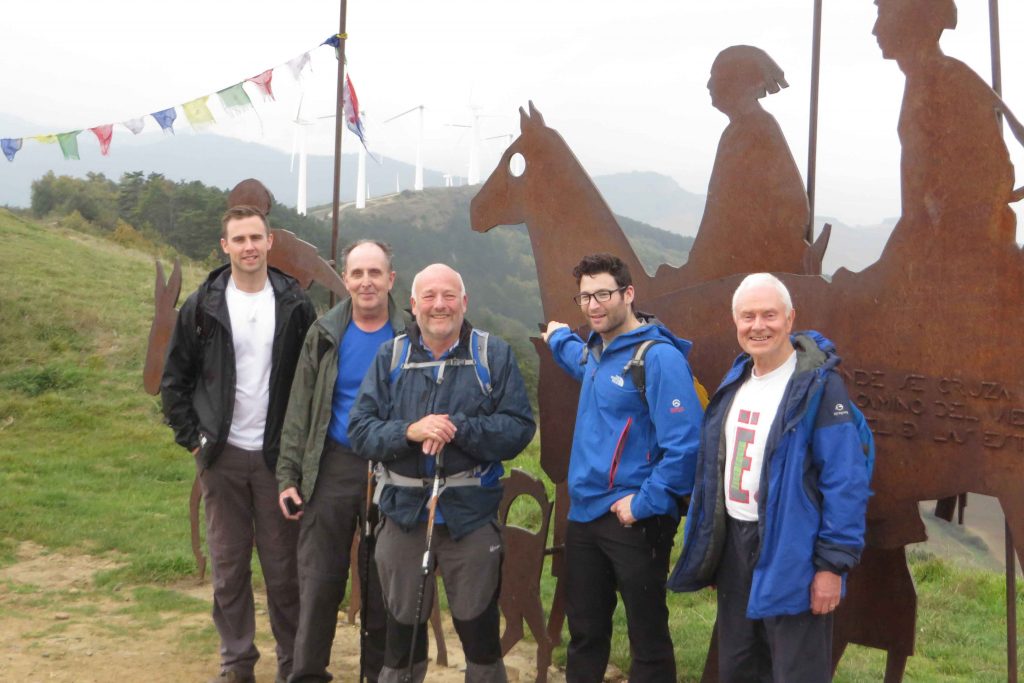



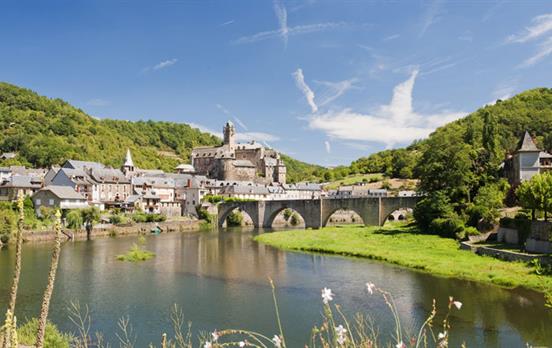
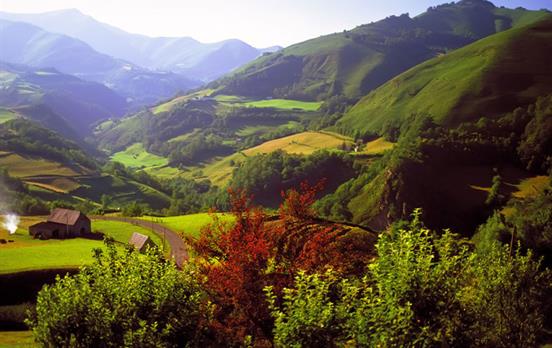
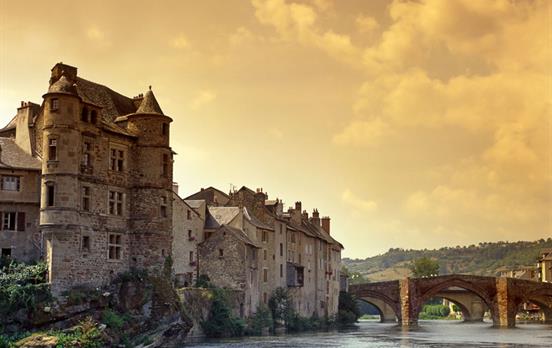
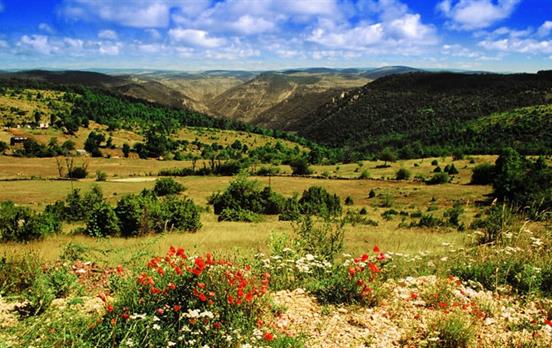
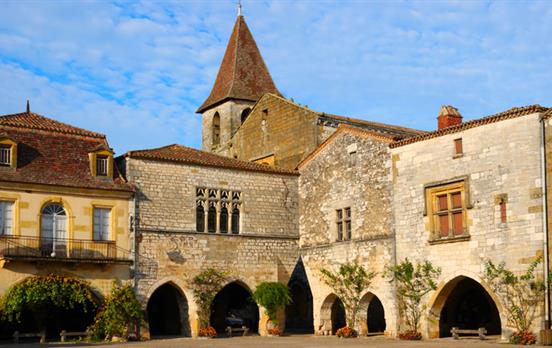
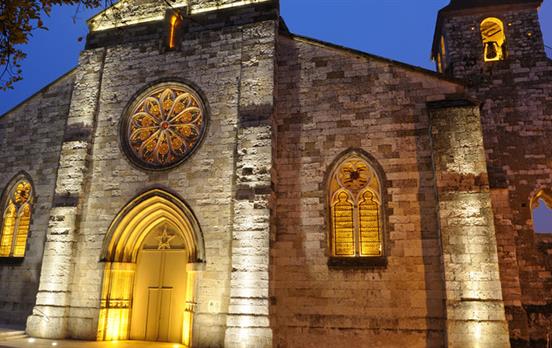
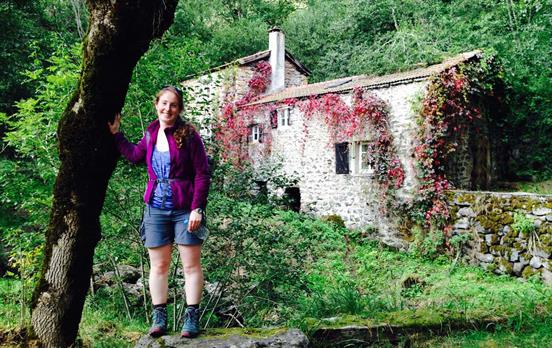
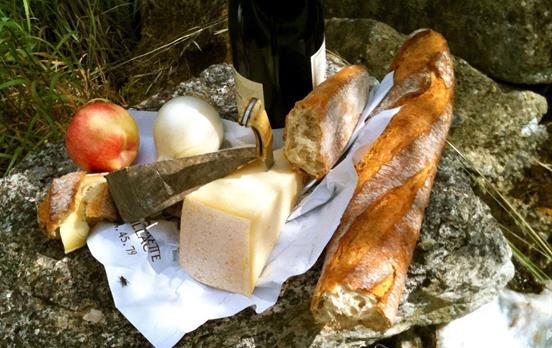
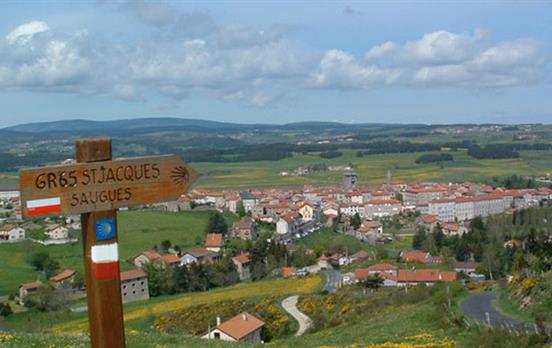
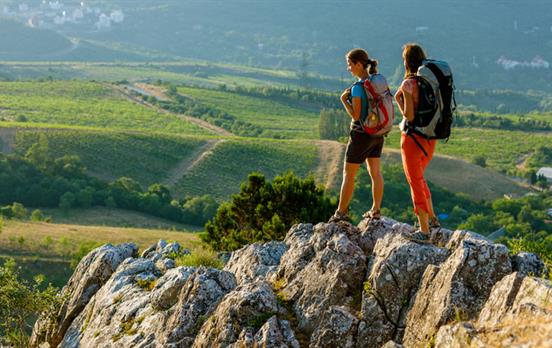
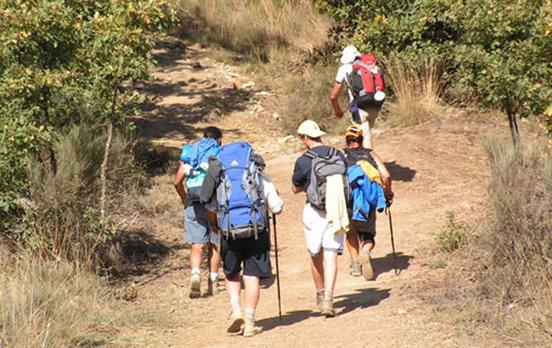
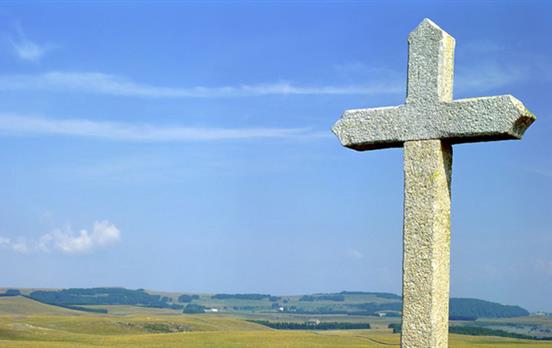
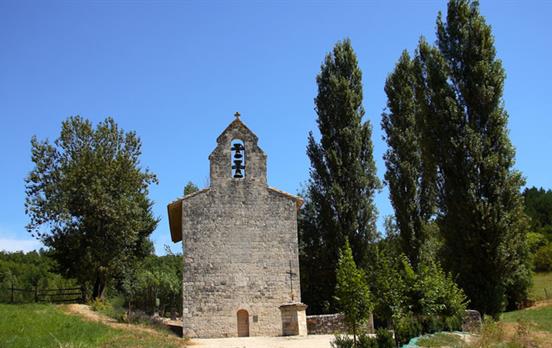
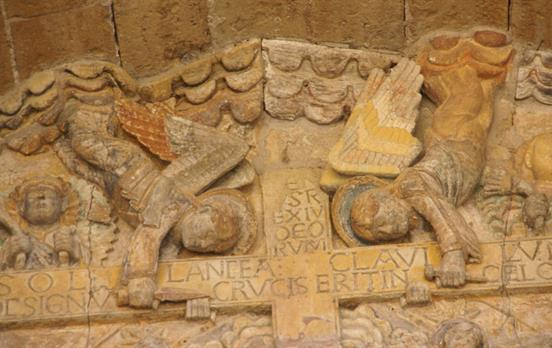
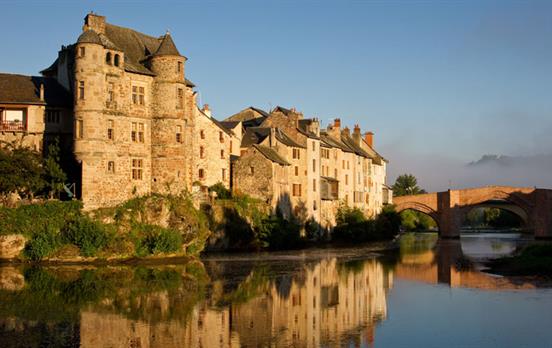
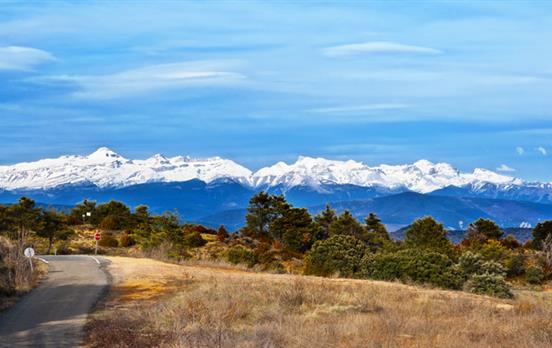
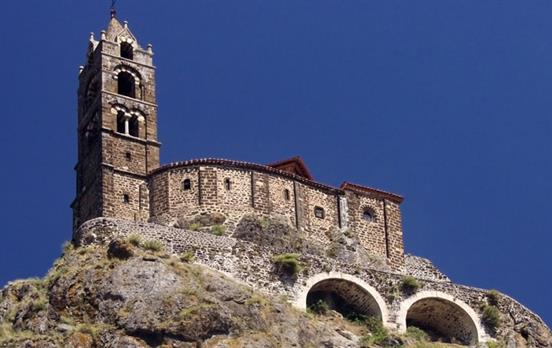
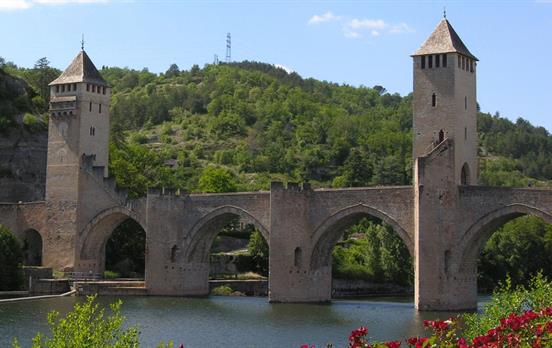
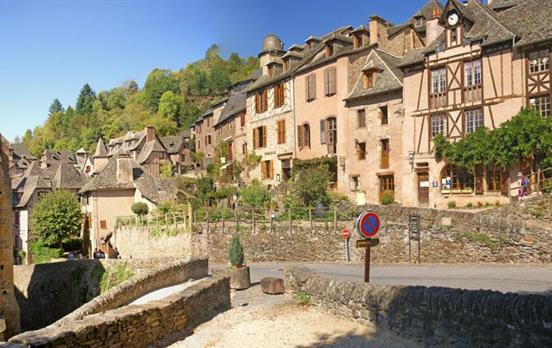
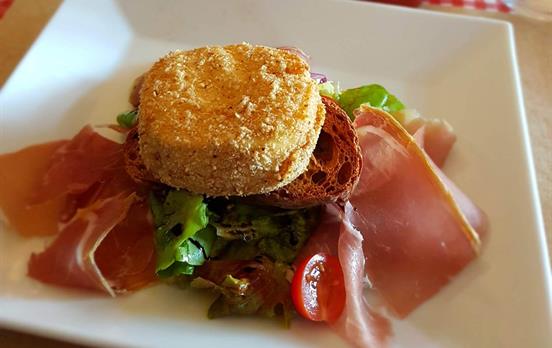
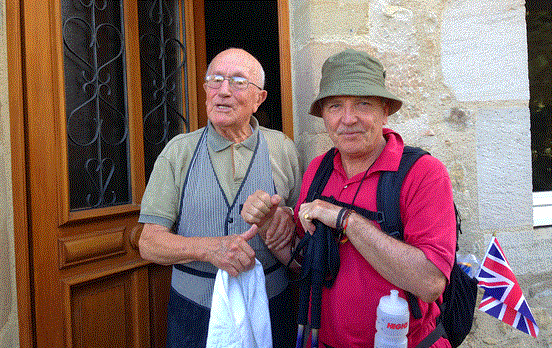
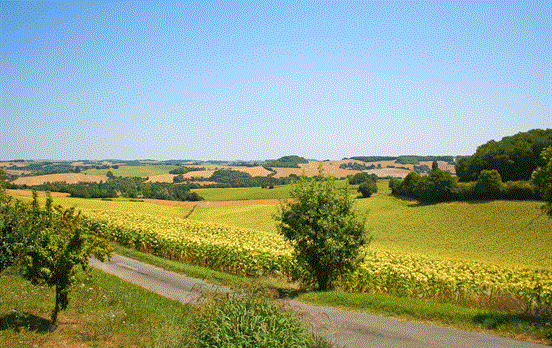

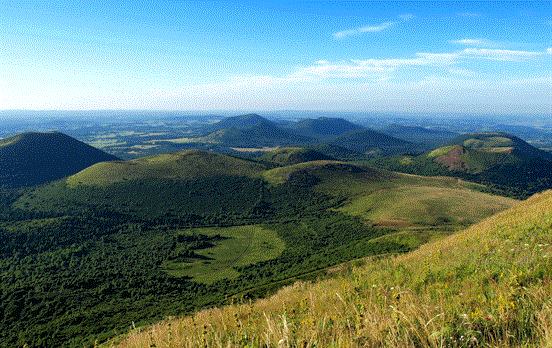
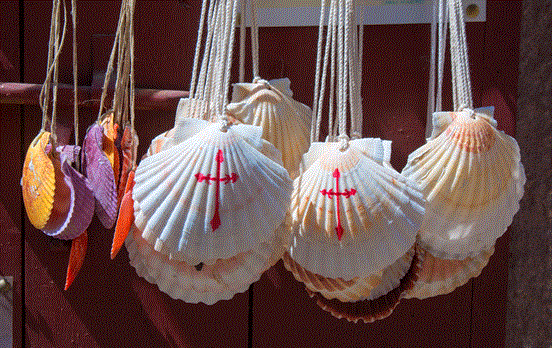

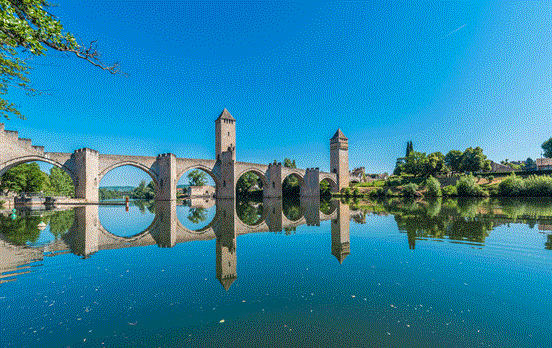
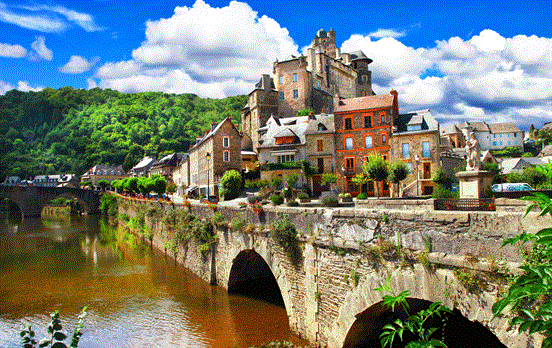
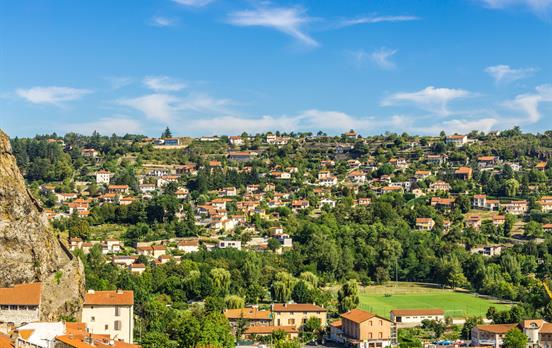



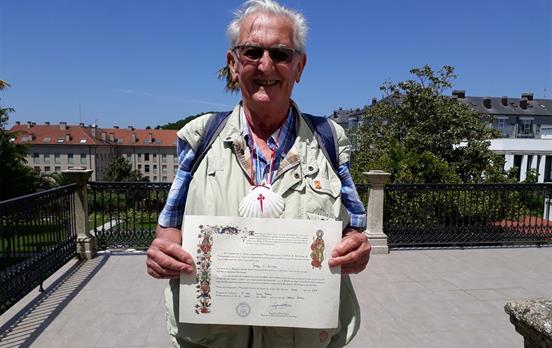
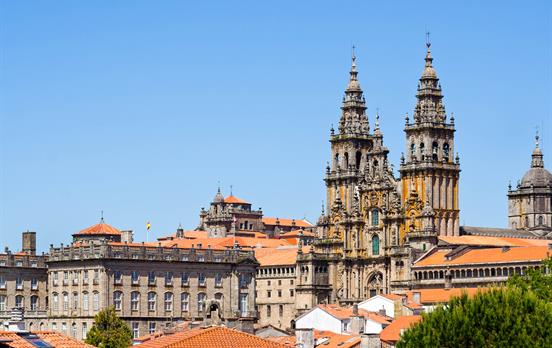
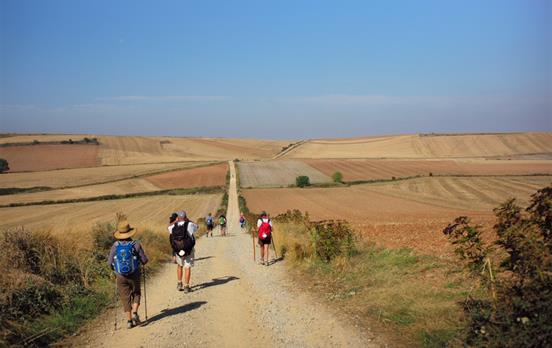

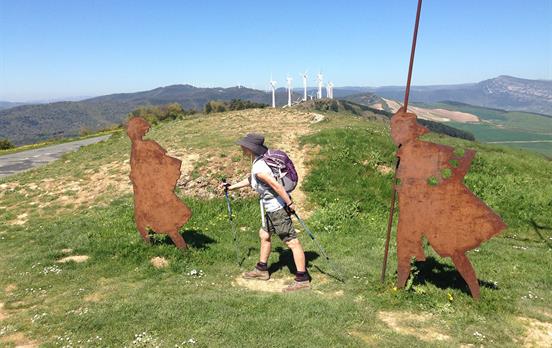
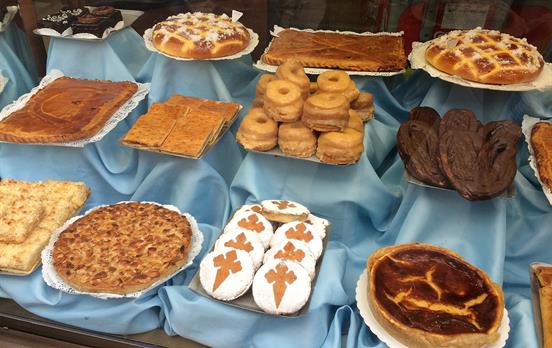
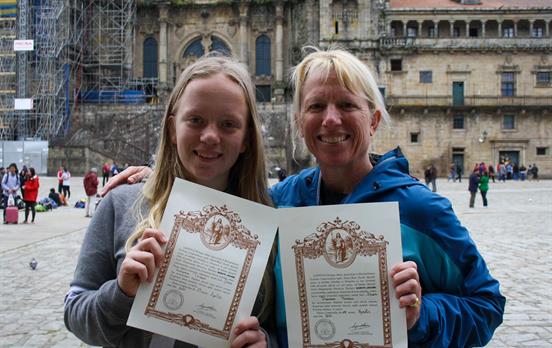
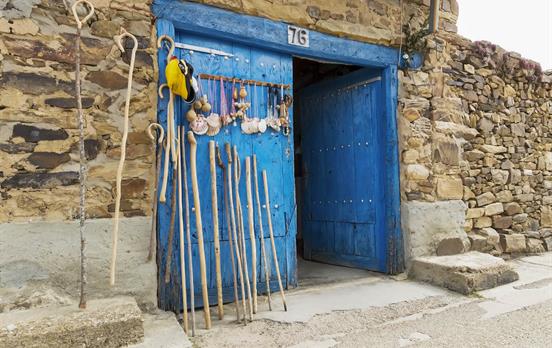
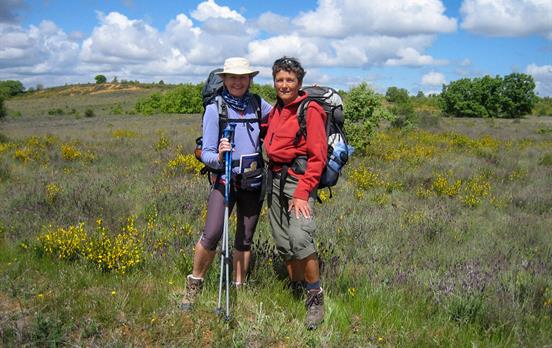
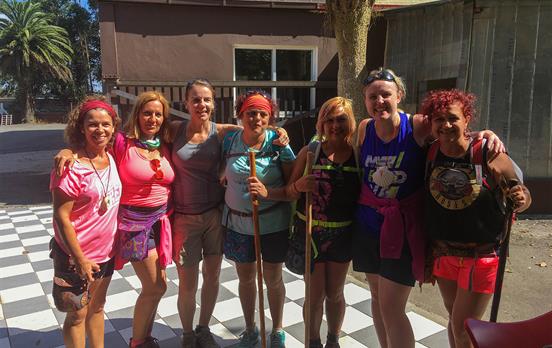
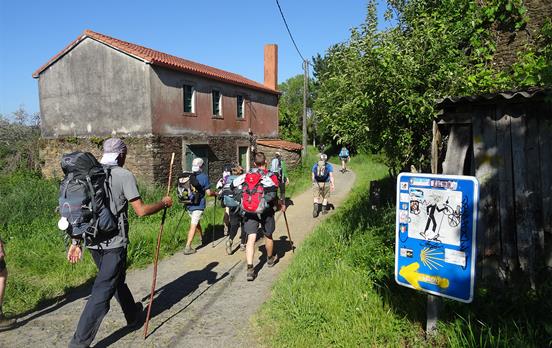
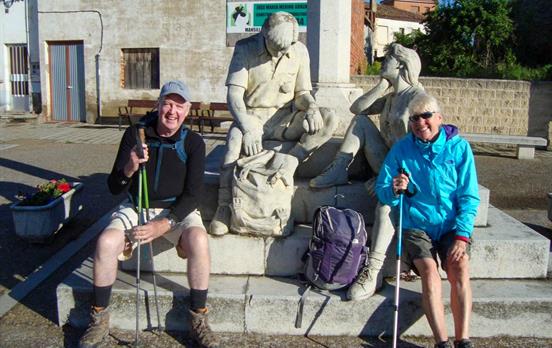
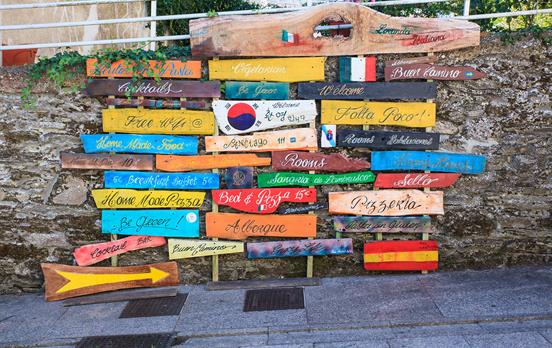


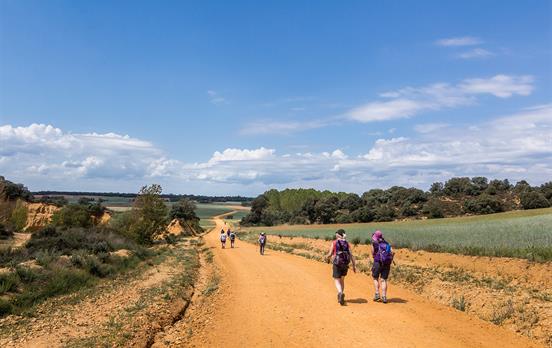
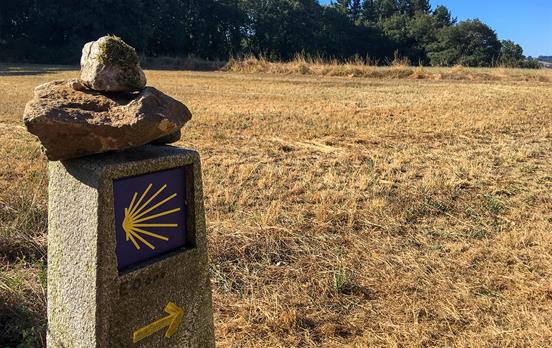
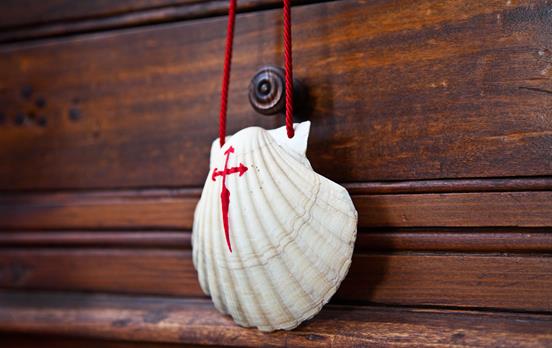
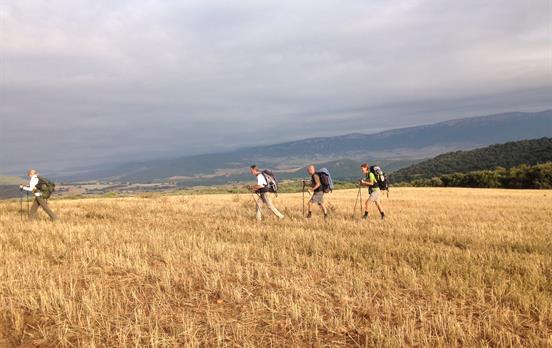
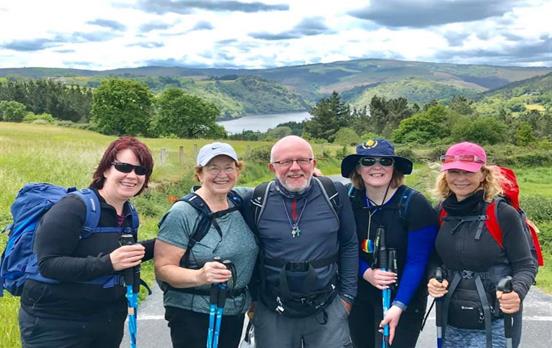

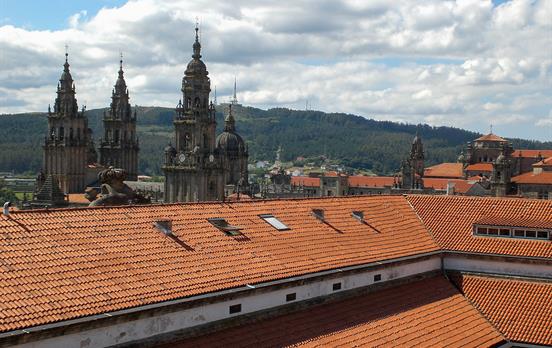
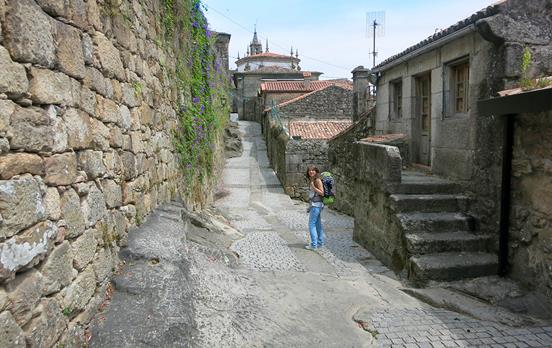
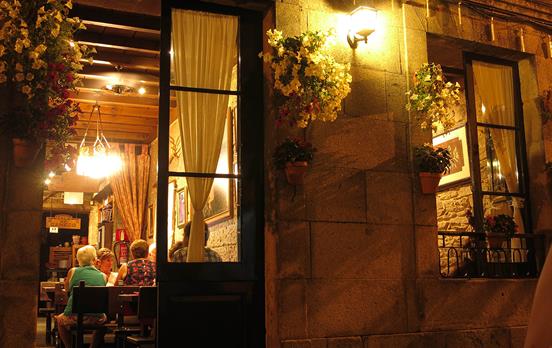
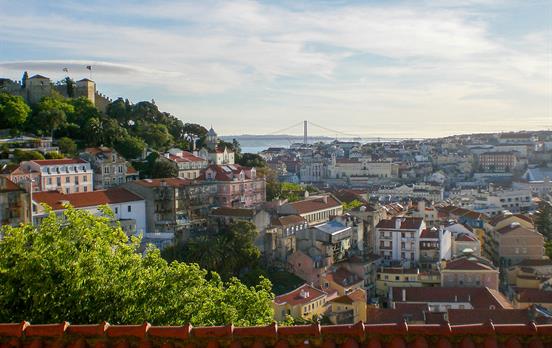
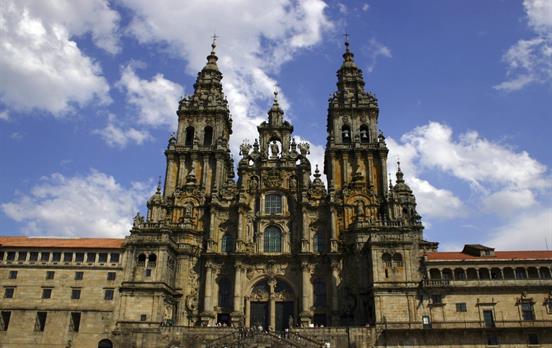
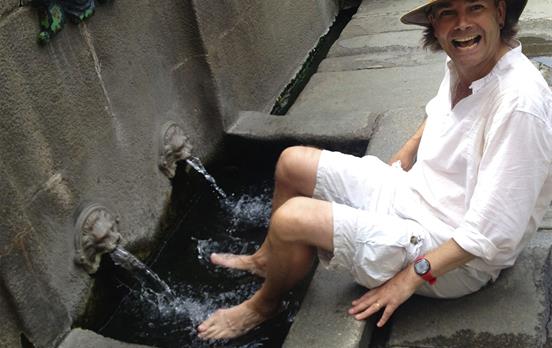
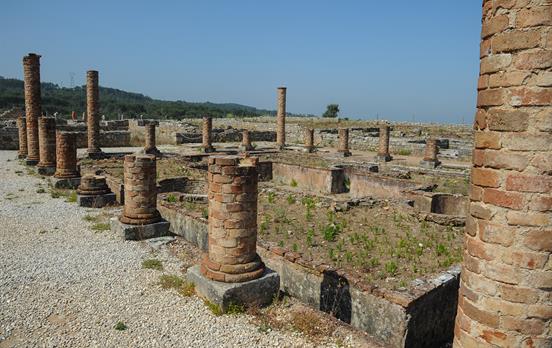
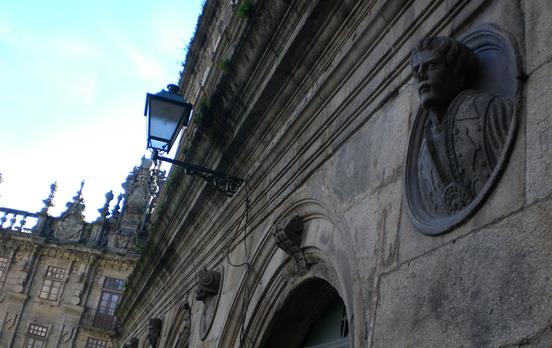
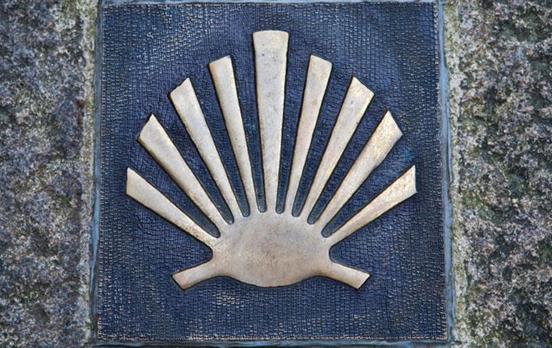

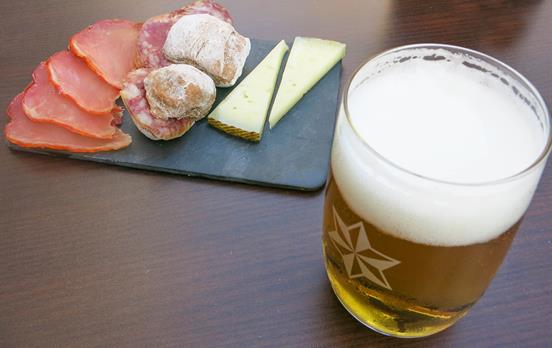
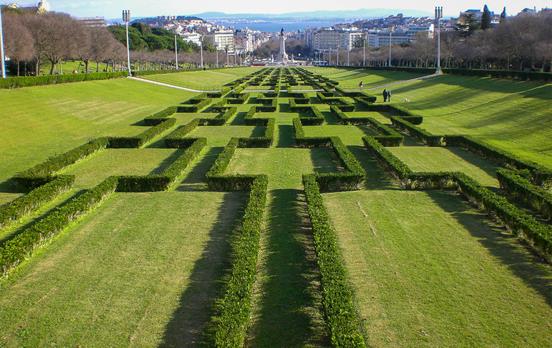

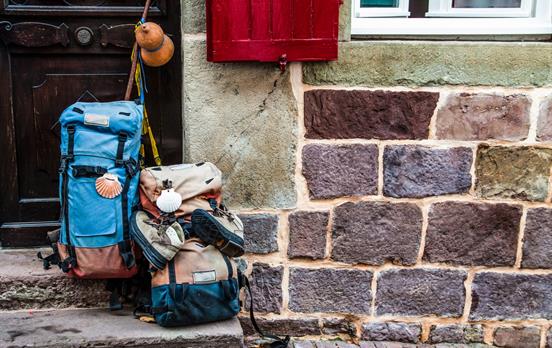
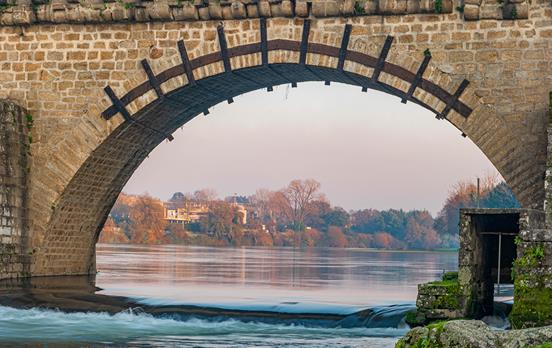
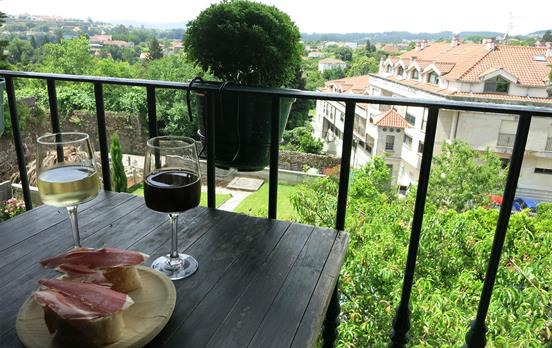
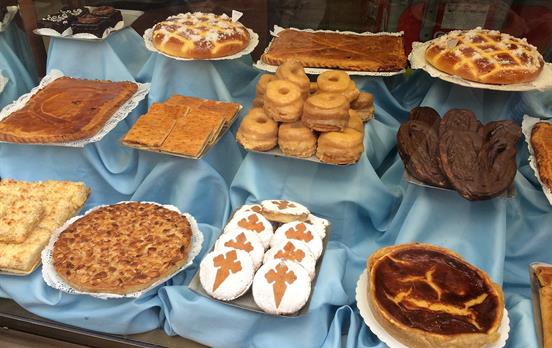
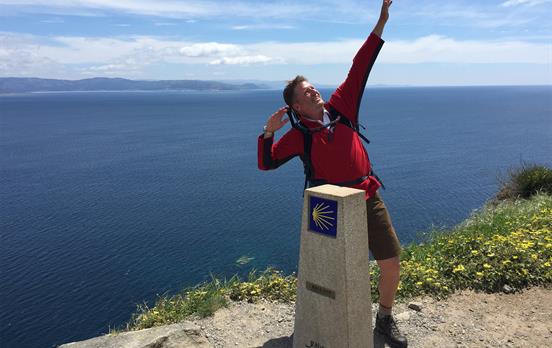
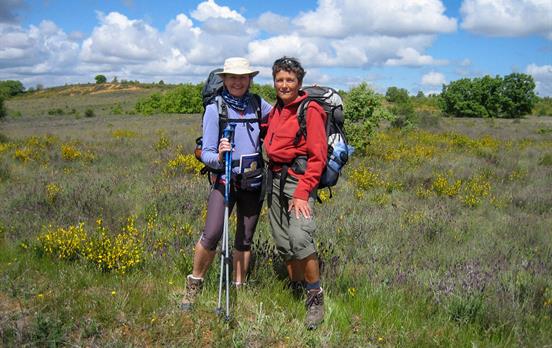
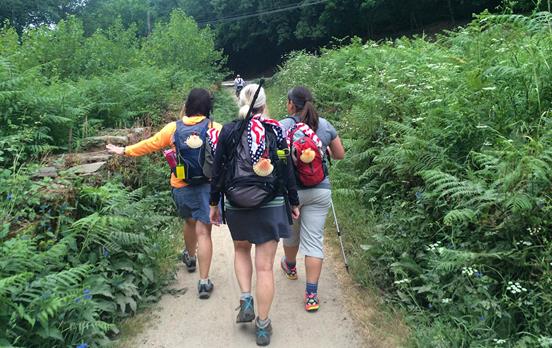


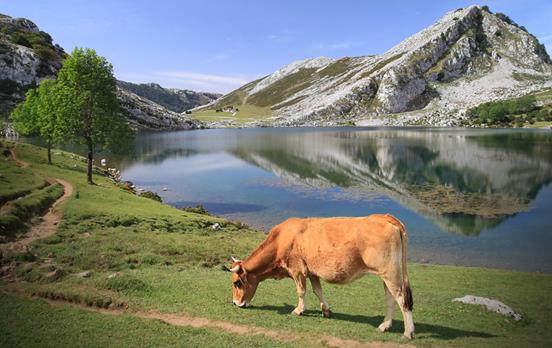
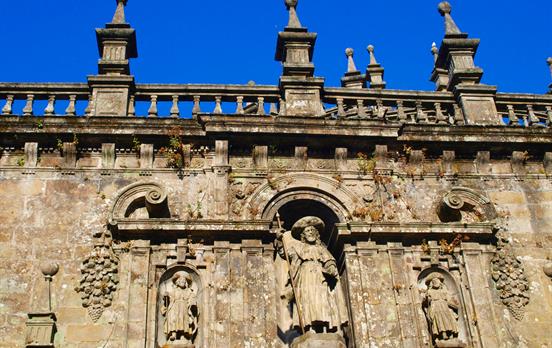
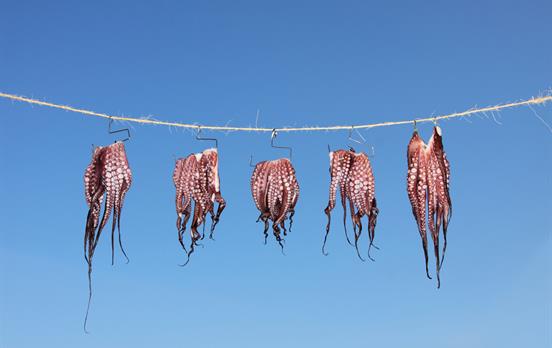
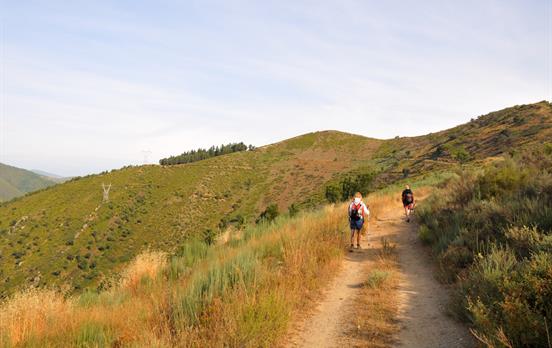
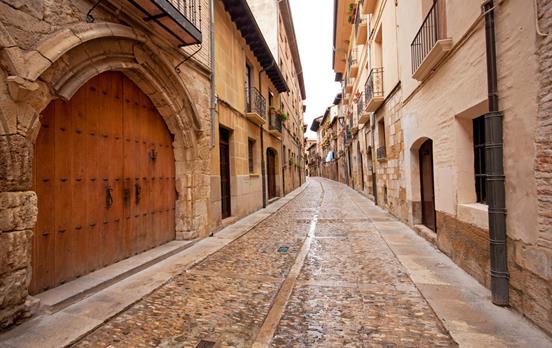
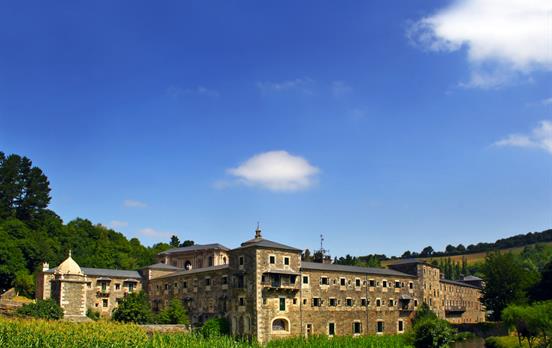
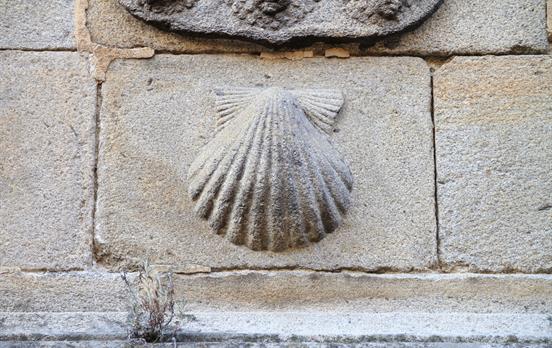
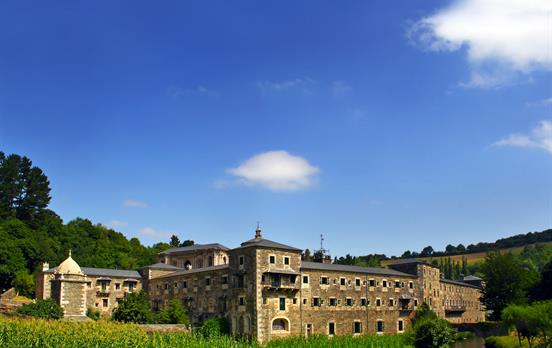
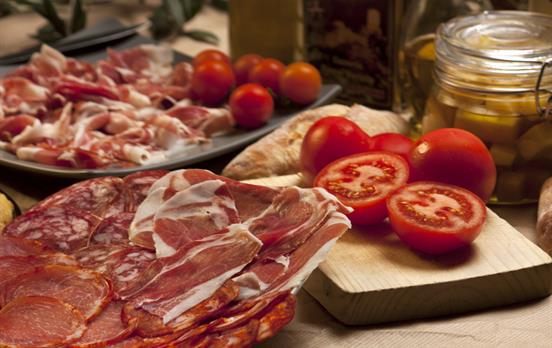
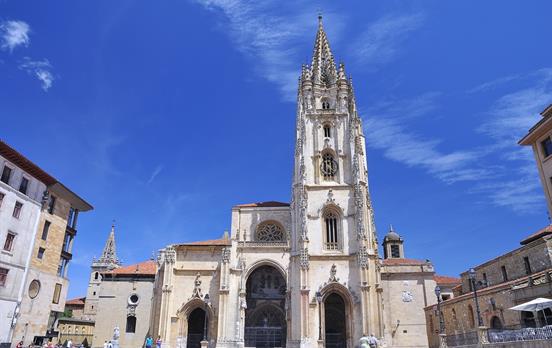
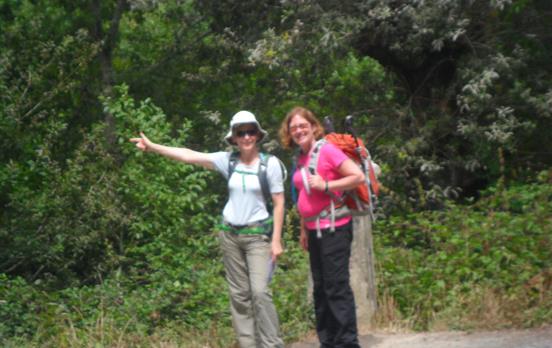
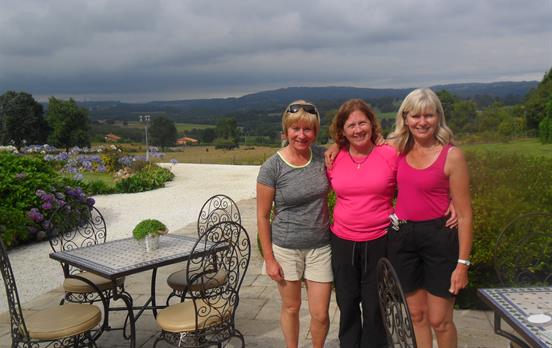
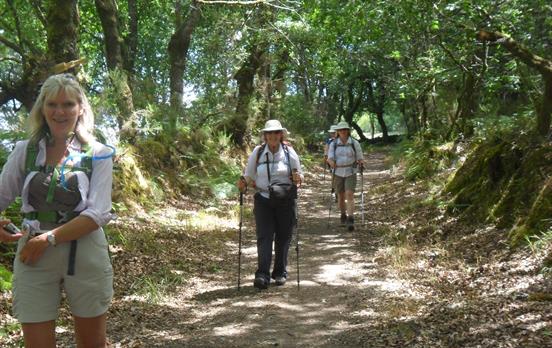
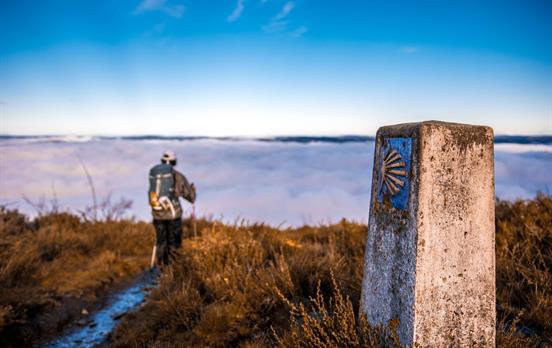

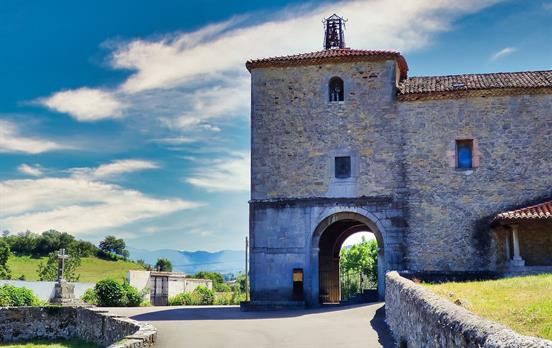
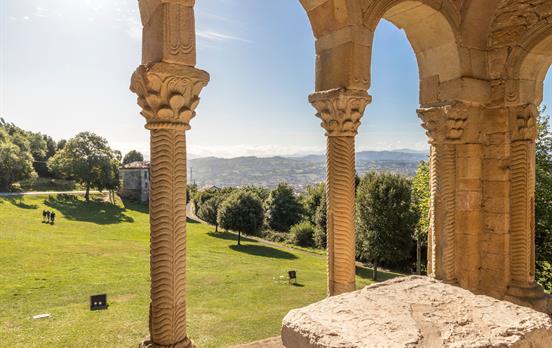

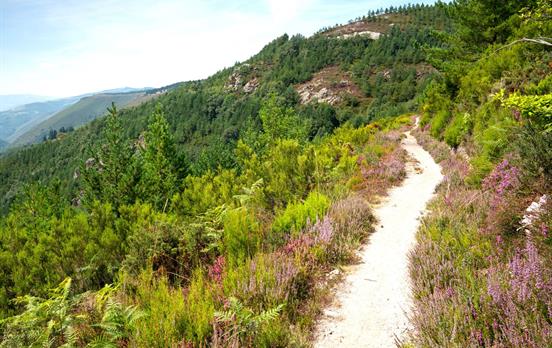

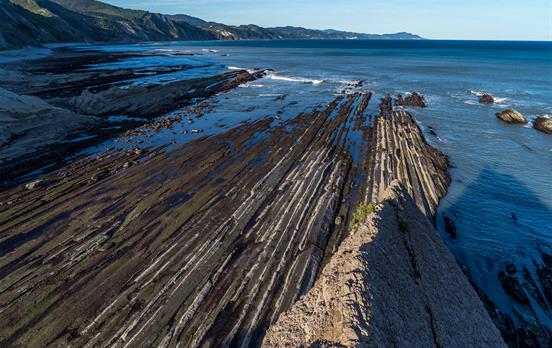

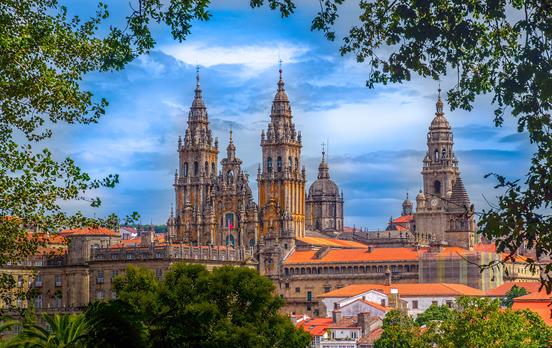
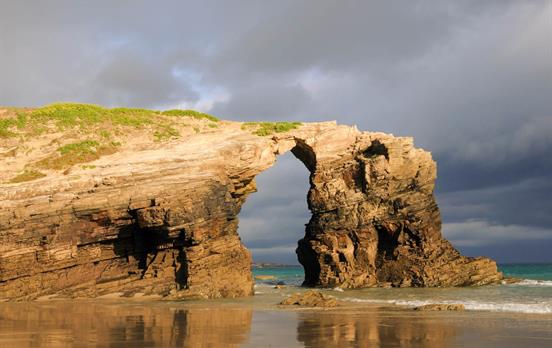
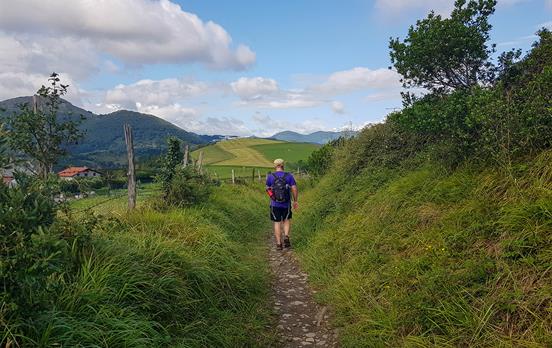
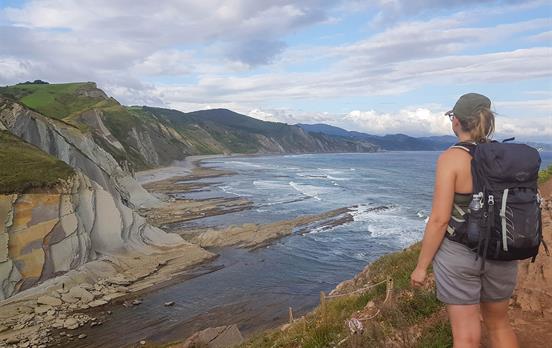
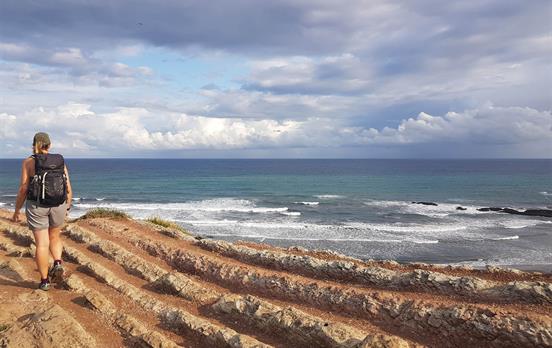
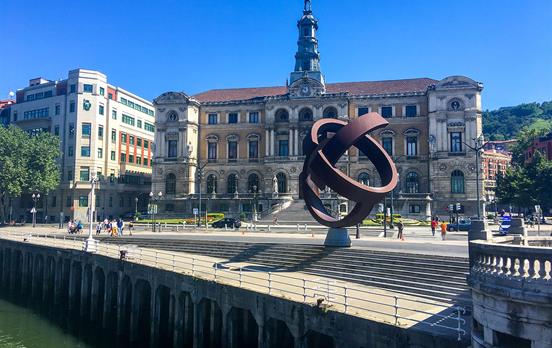
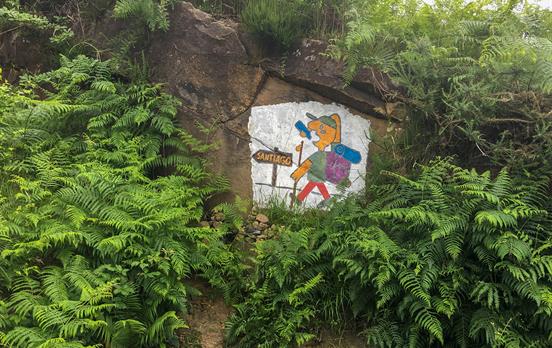
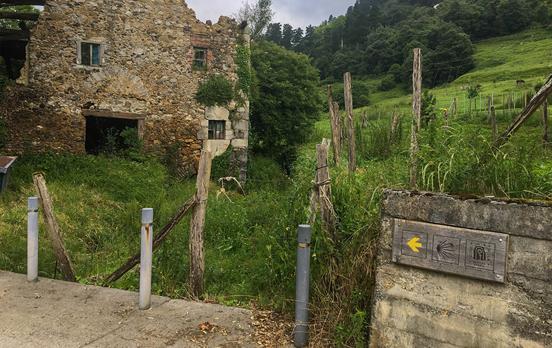
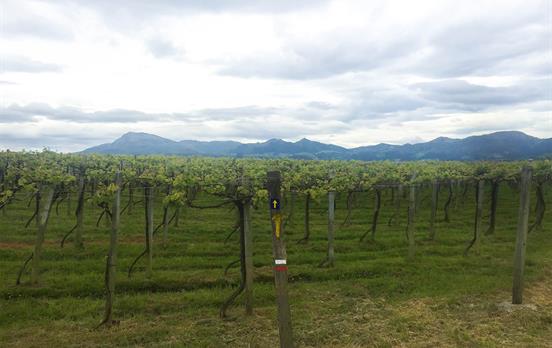
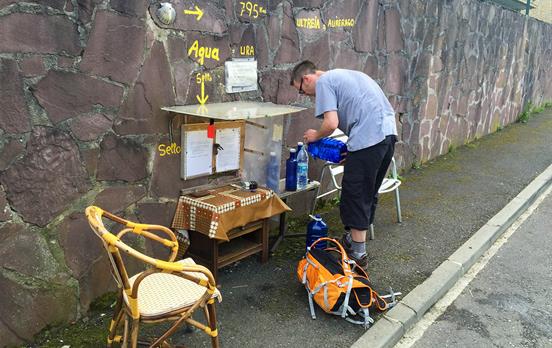
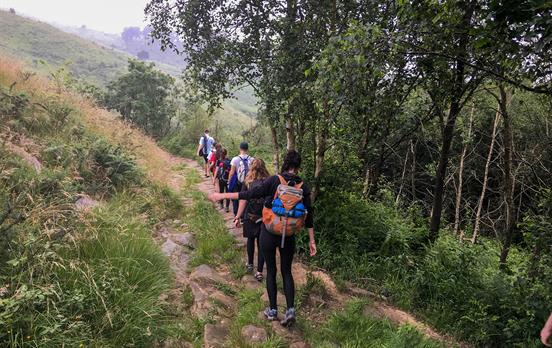
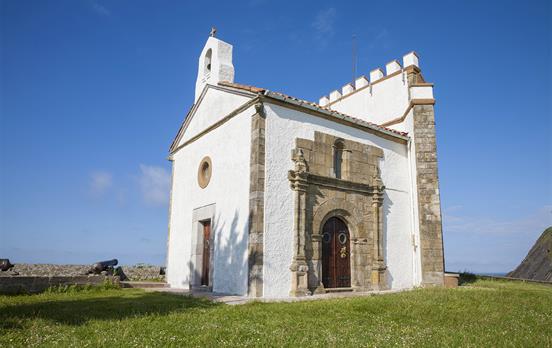


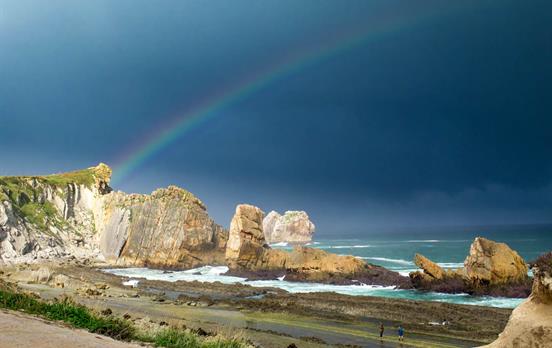

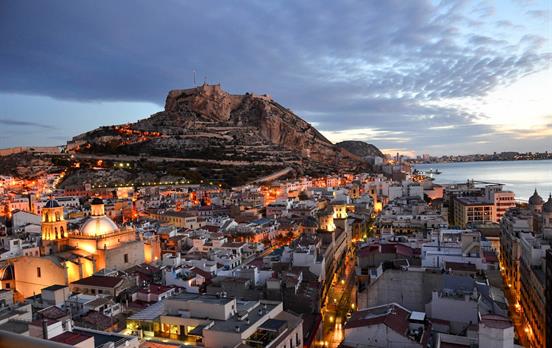
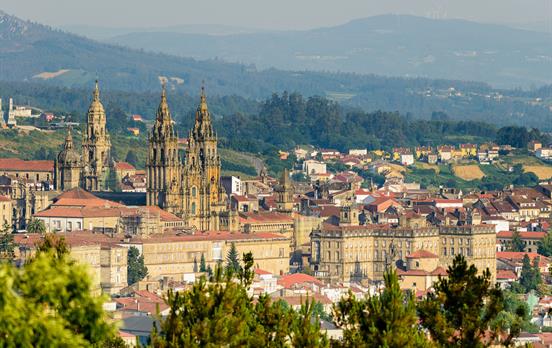
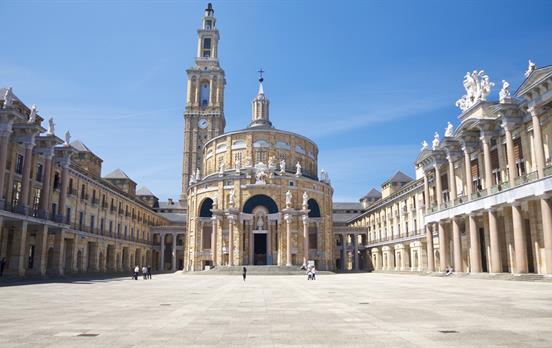
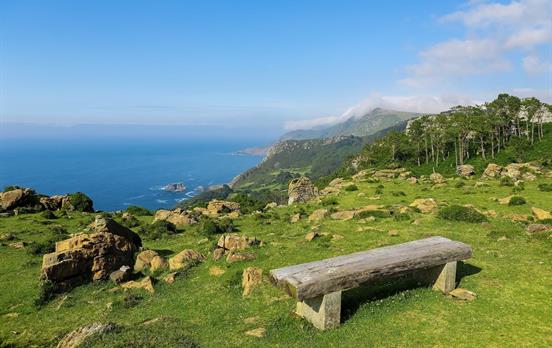
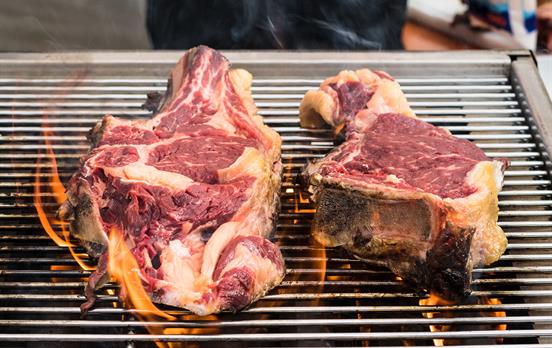
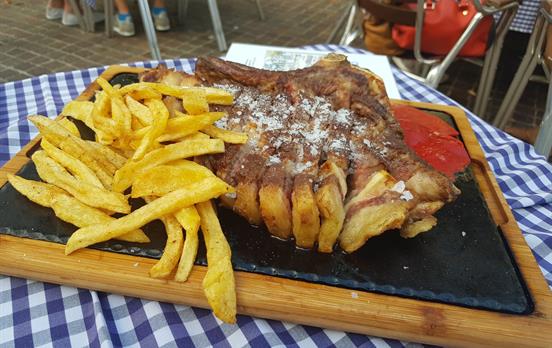

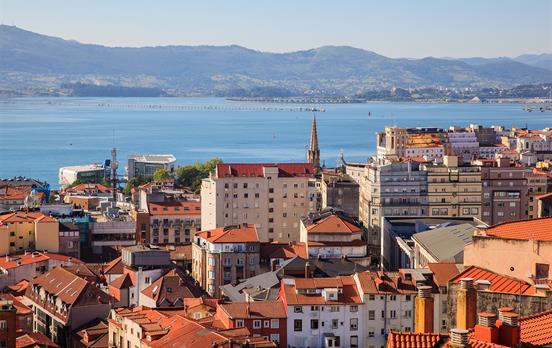
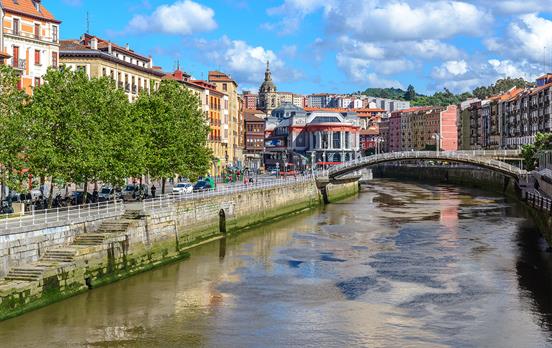
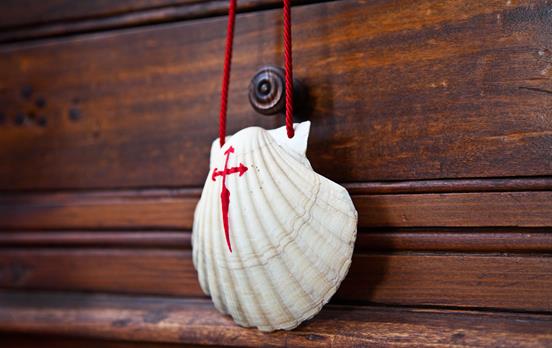
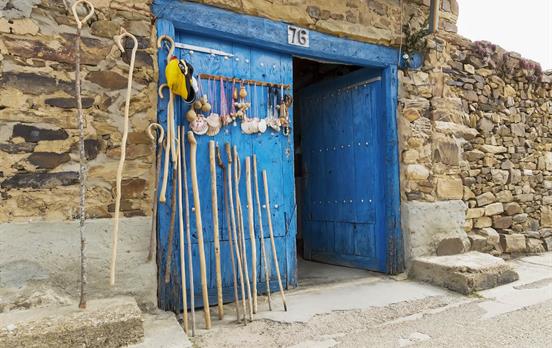
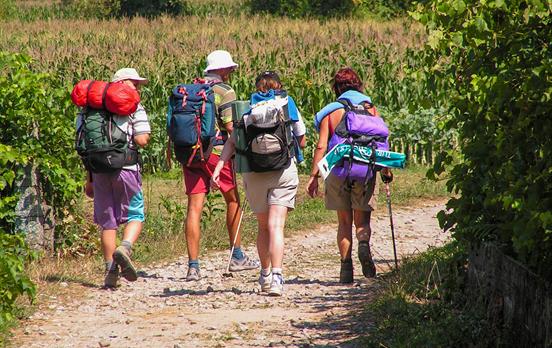
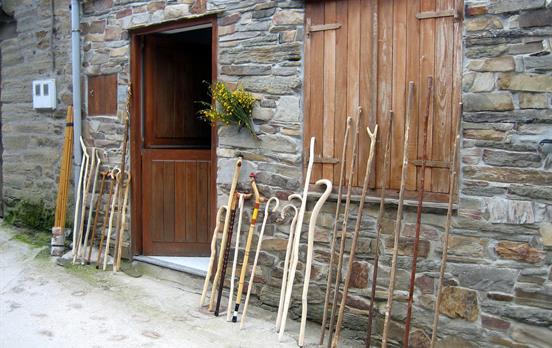
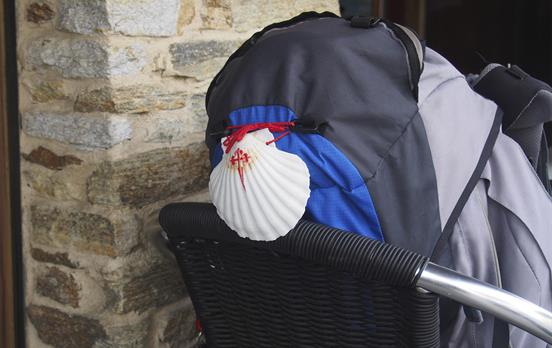

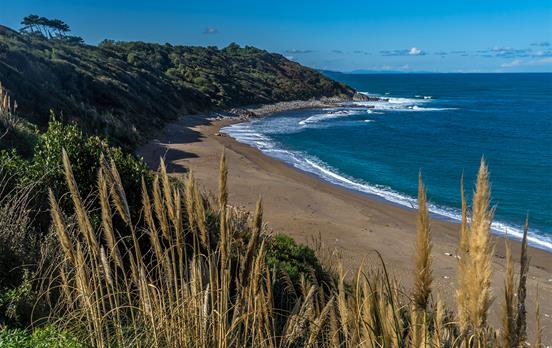
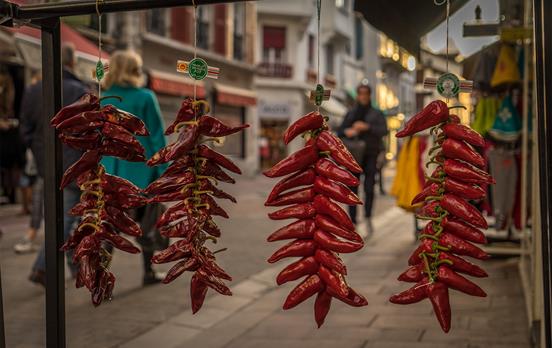
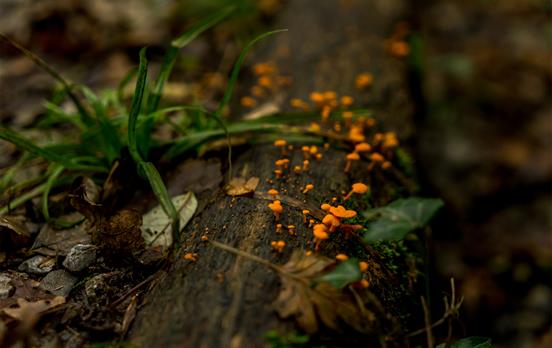
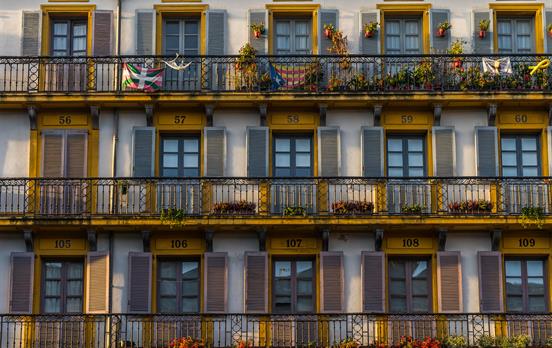

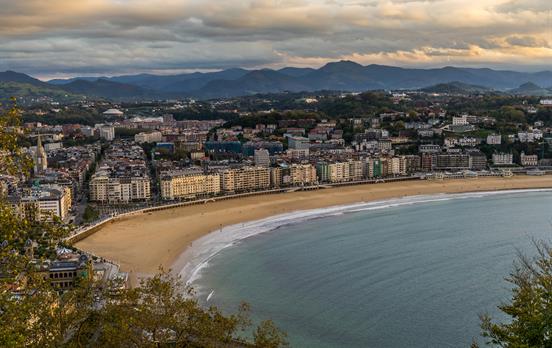
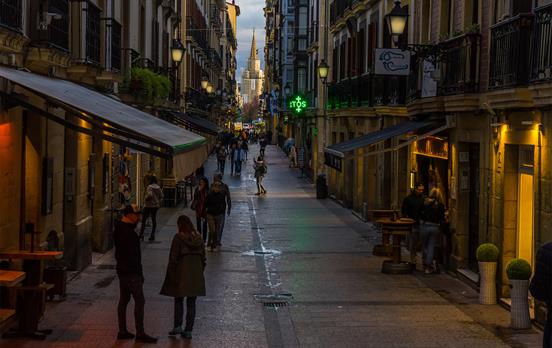

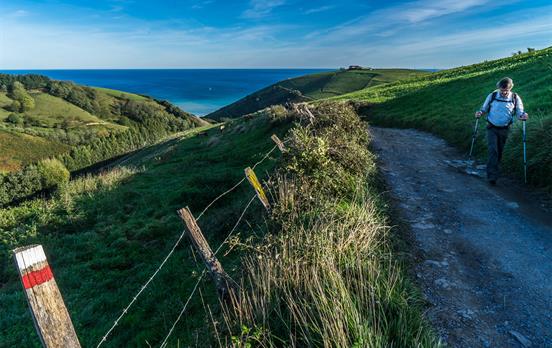
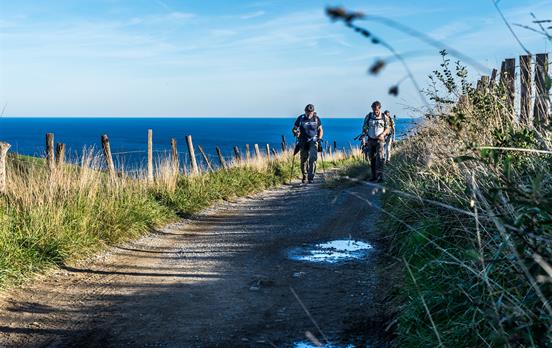
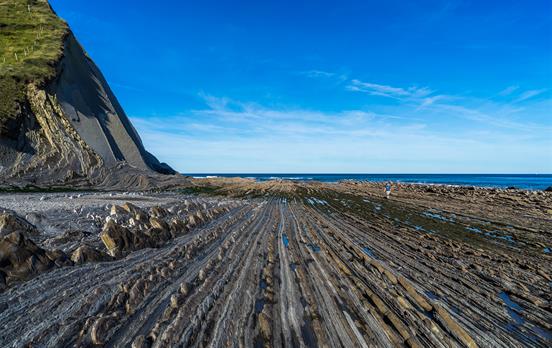
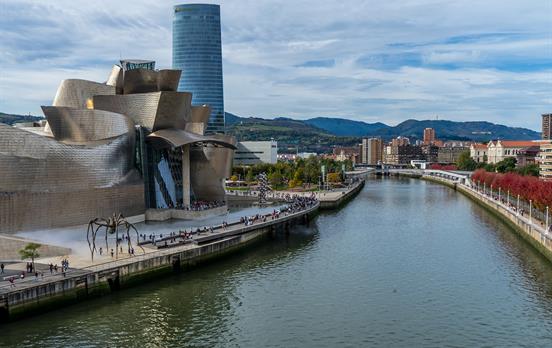


 Australia
Australia New Zealand
New Zealand South Africa
South Africa European Union
European Union